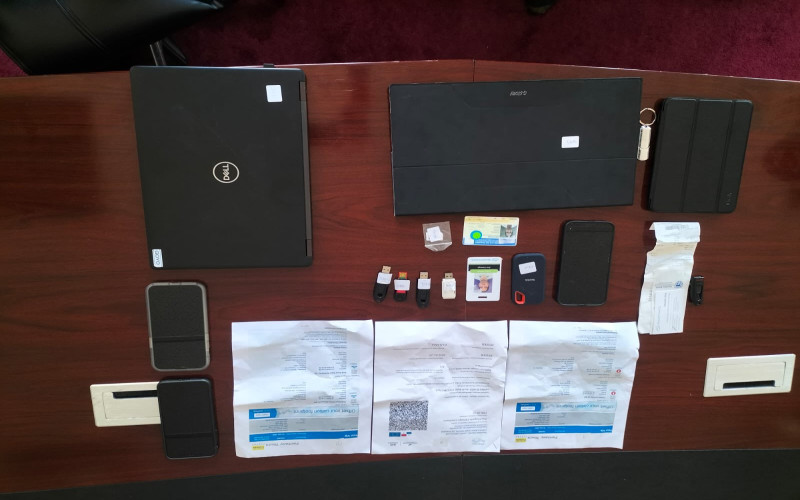
There are a number of reasons as to why the authorities may decide to seize your laptop, computer or mobile phone.
Having your personal electrical items confiscated by the police can be distressing, especially if you feel that equipment may contain incriminating evidence against you.
What if you are traveling through an airport, and authorities confiscate your laptop and phone?
Electronics confiscation is exactly what happened to the three Venezuelan nationals arrested on July 21, by security agents at Nairobi’s Jomo Kenyatta International Airport (JKIA) upon arrival with one of them being in possession.
The items seized included including mobile phones, laptops, flash disks and assorted personal computer accessories.
The authorities choose to seize a personal possession such as a smartphone or laptop to obtain evidence against you from an electrical device.
And while the charges may not be against you, your devices may provide answers to the case in question.
The police said the arrest, impounding subsequent Investigations into their luggage was necessited by the sensitivity of the election materials during the usual screening of the bag bearing the items.
The foreigner identified as Jose Gregorio Camarco who owned the luggages, however, was incoherent and hesitant to answer the questions posed to him.
Under Kenyan law, the police are mandated to detect and prevent crime. It equally gives the police the power to arrest any person in whose possession anything is found which may be reasonably be subjected to be stollen or who may be reasonably be suspected of having committed an offence in reference to that thing.
Equally, he did not have any official documentation to justify being in possession of the said consignment.
The revelations by the police indicated that the electronic items which were claimed to be part of election materials were checked in as personal luggage and not cargo at the country of departure.
The officers questioned how such a sensitive and high-level materials meant for IEBC had nobody waiting for him and in particular to receive the election material.
"On arrival the consignment was not declared to the customs office as it is ordinarily required by custom laws through filling of Form F-88 in compliance to the East African Community customs management laws," George Kinoti, the Directorate of Criminal Investigations (DCI) said.
Detectives also established the suspect had arrived in the country on a business visa while the other two Joel Gustavo and Salvador Javier arrived in the country on July 15 had expired passports and it remains unclear how they managed to leave their home country.
The police further dismissed any claims of confiscating passwords from the suspect.
Arguably, at some point if your computer or laptop is password protected, you may be asked to disclose this information to the police.
However, the likelihood is that the experts analysing your computer will be able to break through such security measures, this includes encrypted files.
In some countries other crimes that would determine your devices being confiscated include illegal pornography, as well as fraud and drugs offences.
If you are being investigated for one of these cases, it could very well be the case that the police can seize your electrical possessions, such as your computer, laptop or mobile phone.
As for your electrical possessions that have been seized, they will most likely be bagged up and categorised as evidence before being taken for analysis.
By Fridah Wangechi | 1 year ago
By Fridah Wangechi | 1 year ago
By Fridah Wangechi | 1 year ago
By Fridah Wangechi | 1 year ago
President Ruto Renames Utamaduni Day in New Law
Ezra Manyibe | 22 hours ago